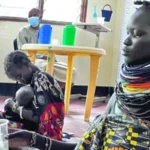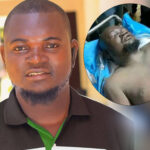Former Kenyan President Daniel Toroitich Arap Moi Dies
Published on February 4, 2020 at 9:07 AM by Mc Noel Kasinja
Born on September 2, 1924, Moi first served as Vice President for fourteen years, before taking over as an Acting President on August 22, 1978, following the death of President Jomo Kenyatta, who ascended to the presidency in 1964 after serving as Kenya’s inaugural Prime Minister when the country gained independence in 1963.
Moi’s ascension to power was in accordance with a constitutional provision that mandated the Vice President to govern for ninety days in the event the seat of the President fell vacant.
He later was declared substantive President in September 1978 after a special cabinet meeting endorsed him for the November 8, 1978 poll.
The new leader of the then ruling Kenya African National Union (KANU) had delayed naming a new cabinet following the death of Kenyatta, promising to follow in the footsteps of the founding father.
“I’ve said several times that I don’t intend to make major changes in the administration of the country and that I am going to follow the policies laid down by our late father of the nation. I have decided to wait for wananchi’s verdict in the forthcoming general election before I make a major cabinet reshuffle,” he said in a televised address a month after assuming office on an acting capacity.
Moi had ventured into politics in 1955 following his election as member of the Rift Valley Legislative Council, replacing John ole Tameno.
He later served as Education Minister in the pre-independence government (1960 – 1961).
A founding member of the Kenya African Democratic Union (KADU), Moi alongside co-founder Ronald Ngala joined the governing KANU after the party was disbanded.
He served as Home Affairs Minister before taking over as Vice President in 1967 when Joseph Murumbi who had hardly been on the job for five-months tendered his resignation.
Murumbi had taken over from Jaramogi Oginga Odinga who resigned over ideological differences with Kenyatta.
Moi’s 24-year rule was characterized by clamour for a constitutional amendment to allow for multi-party politics which was abolished in 1982 under his rule.
The governing party had at the time introduced a controversial voting system where voters were required to queue behind a candidate of their choice as opposed to casting secret ballots.
The system which was popularly known as Mlolongo was fiercely opposed by opposition politicians who termed it a vote-rigging tool used by KANU to perpetuate a majority in Parliament.
After years of resistance by opposition figures led by the late Kenneth Matiba, Charles Rubia, and former Prime Minister Raila Odinga, KANU 1991 National Delegates conference agreed to the re-introduction of multi-party politics.
“I want to ask you today fellow delegates that let us repeal Section 2A of the Constitution and let us stick together as a party because we shall surely triumph,” Moi told KANU delegates at the Kasarani National Stadium.
The party also endorsed the introduction of presidential terms, limiting a president to two five-year terms.
Other politicians led by late Vice President Oginga Odinga, Masinde Muliro, Siaya Senator James Orengo, Reverend Timothy Njoya, Martin Shikuku, lawyer Paul Muite, and Gitobu Imanyara, had grouped to form what they dubbed as the Saba Saba movement to champion for the opening up of democratic space and cessation of arbitrarily arrests and human rights abuses.
In the period leading to the 2002 presidential election in which he had picked current president Uhuru Kenyatta as his preferred successor, Moi signed a new legislation following demands by opposition parties giving opposition parties more representation in the electoral commission.
A multi-party poll agency was formed following the enactment of the new legislation passed by parliament.
Moi retired on December 30, 2002, after Mwai Kibaki – leading formation of opposition parties under the National Rainbow Coalition – trounced his chosen successor, Uhuru, garnering 3.6 million votes, equivalent to 61 per cent of votes cast.
During his presidency, Moi held a number of regional portfolios including Chairperson of the Organization of African Unity (presently African Union) between June 24, 1981 and June 6, 1983.
He remained vocal on local politics after retirement opposing the 2010 draft constitution as ill-timed and improperly conceived.
Both Moi and then Eldoret North lawmaker William Ruto’s (now Deputy President) NO camp had demanded for further review of the draft constitution before being subjected to a referendum.
“We’ve said it so clearly in the Rift Valley that we’re voting NO!” he said in May 2010 citing new land policies enshrined in the law and the difficulties he argued the country may face in future attempts to review the constitution.
Proponents of the draft constitution led by then President Kibaki, then Prime Minister Raila Odinga, and his deputy at the time Uhuru Kenyatta carried the day, the YES campaign winning 68 percent of the vote cast.
Moi – father to eight children – was married to Lena, who faded from the public scene in 1970s, a few years before her husband succeeded President Kenyatta.
His son Gideon succeeded him as Baringo Central Member of Parliament and was later elected Senator for Baringo in 2013.
Moi and Lena divorced in 1979. She died in 2004 and was buried at the retired president’s Kabimoi home despite having separated.


